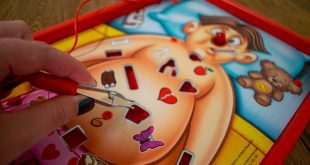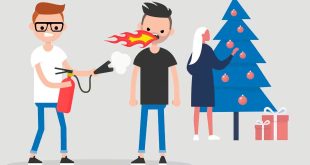 Nutritionists explain the link between eating in the dark and losing weight.
Nutritionists explain the link between eating in the dark and losing weight.
Experts have told that deprive people of the opportunity to see the food he eats can lead to weight loss.
Primarily, this is due to the physical challenges associated with finding food on the plate. A new study found that people who ate food blindfolded, were less likely to eat and overestimate the amount of food eaten. In addition, people feel much more satiated when they did not see food.
Vision, as scientists believe, plays a key role in the process of the meal, helping people to judge how much food they ate. When a person is not able to see the food, his judgment on the amount of food eaten are found to be incorrect. This may be due to the fact that during the meal, with eyes closed, other senses sharpen.
Studies show that blind people with no vision demonstrate a more developed ability to recognize odors and heightened tactile sensation. It is because of the amplification of the other senses people blindfolded overestimate the amount of food eaten to a much greater extent than people who can see the food on the plate.
In the study, researchers asked 90 students to eat ice cream three different flavors – cherry, caramel and vanilla with strawberry sauce. Half the group were asked to assess the taste and texture of ice cream, and then answer questions about how well-fed they felt and how much ice cream they presumably ate.
The rest of the participants performed the same task, but they used a modified ski goggles, which immersed them in the dark while eating ice cream. Subjects were also asked about their willingness to buy the products. The experts found that students who ate ice cream in the glasses and could not see ate 9% less in comparison with the other participants. These people also showed less desire to buy the product. While the first group overestimated the amount of food eaten 33%, students who ate with his eyes closed, overestimated this number by 88%.
According to the researchers, the inability to see the diet reduces the power of visual stimulation, with the result that the person starts eating less. This is due to the fact that people during the meal, primarily rely on vision when deciding about how much they ate. When a person does not see the food consumed, it reduces the value of food stimuli and, consequently, reduces hedonic hunger.
Experts believe that this may be an artifact of human evolution – thus, our ancestors used sight to identify the food that might be edible, and the products that can be harmful and dangerous.
Nutritionists recommend losing weight people to close their eyes during the meal to concentrate on other sensory perceptions, as it can help to lose weight








